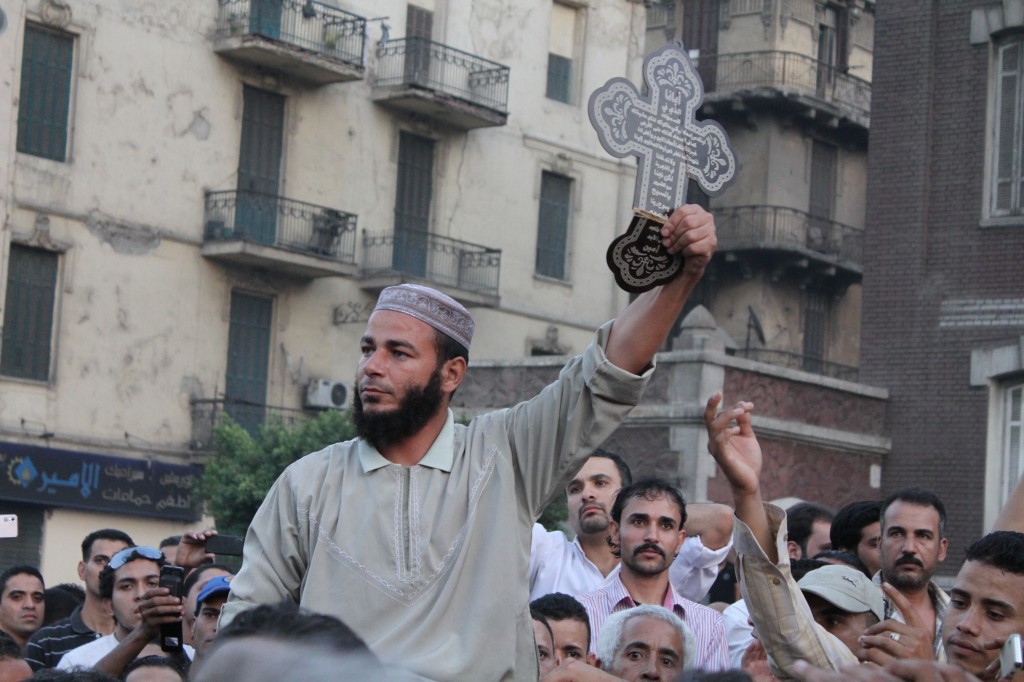In celebration of the Coptic Apostles’ Feast on July 12, the Egyptian Coalition of Minorities hosted its second annual iftar at the Sha’ar Hashamayim Synagogue in Downtown Cairo, commonly known as Adly Street Synagogue. The iftar, which is the breaking of the fast at sunset during the Islamic Holy Month of Ramadan, was attended by representatives of Egypt’s religious and ethnic minorities, who gathered to celebrate and advocate for the diversity and pluralism of the Egyptian society. “I welcome you all to the synagogue, which is a house of God,” said Magda Haroun, Jewish community leader in Egypt, adding that “despite our different beliefs, there is one God for all three religions.” “Today is a remarkable day in the history of Egypt,” remarked Mina Thabet, member of the Egyptian Coalition of Minorities. “We’re holding an iftar for Muslims, who constitute Egypt’s majority, on the Apostles’ Feast, a feast for Copts, who constitute Egypt’s largest religious minority, inside the synagogue which belongs to Jews, Egypt’s smallest and oldest religious minority.” Thabet also expressed that the diversity and plurality of ethnicities and religions have always added to the richness of the Egyptian…




